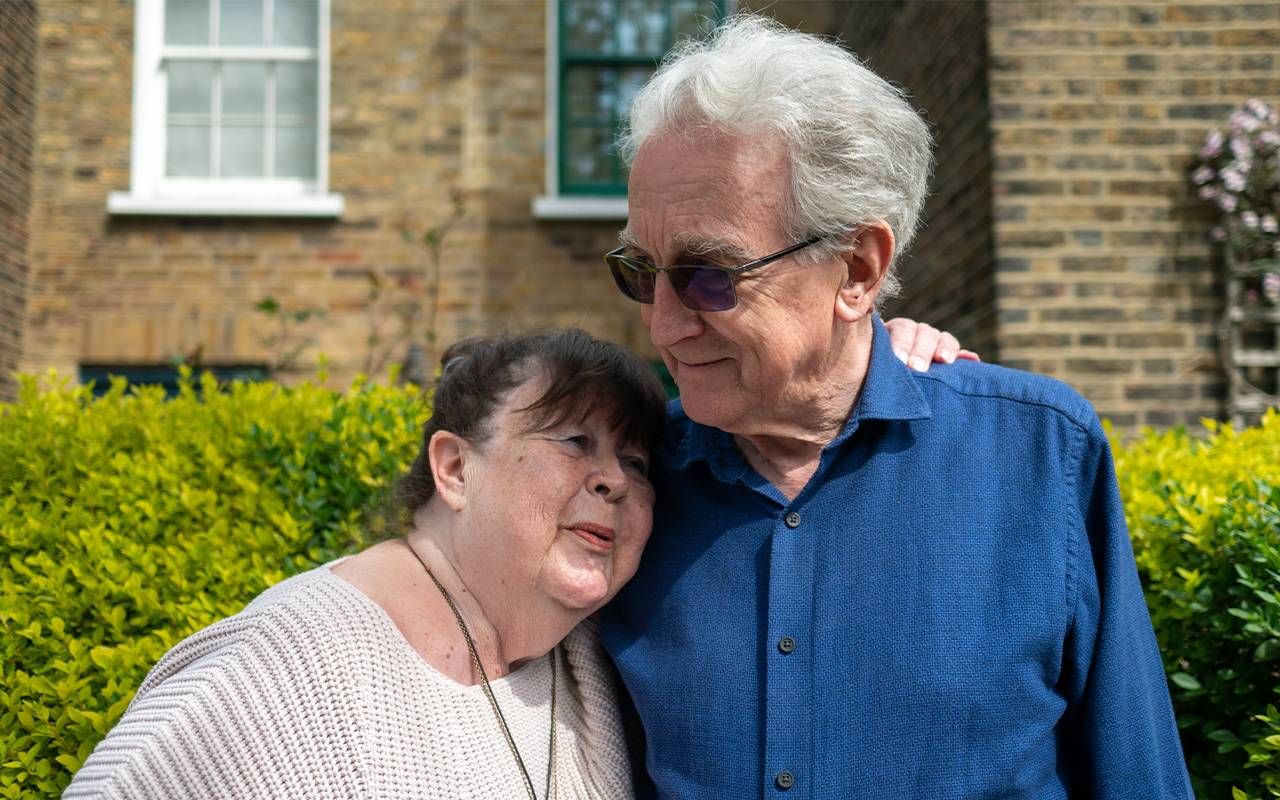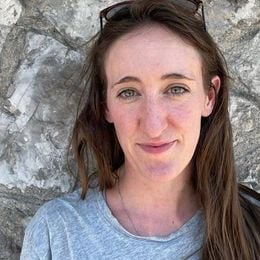Overcoming Depression, From Home
Working outside of traditional mental health settings can reach people not as connected to care resources, surmounting barriers like transportation access and stigma around mental health
A woman Carolyn Jones, of the Florida agency Elder Options, worked with was struggling with depression after her mother passed away. The woman wanted to visit her only grandchild, in Baltimore, but the long trip seemed impossible.

Jones worked with her using an approach called PEARLS, the Program to Encourage Active, Rewarding Lives. Over the course of a couple of sessions, the woman put together a plan to drive, and then took the long journey north. Making the trip not only gave her time with family, it also gave her an emotional boost.
"It made her feel really good about herself in that she had accomplished the things that she set out to accomplish."
"It made her feel really good about herself in that she had accomplished the things that she set out to accomplish," says Jones, the coordinator of Elder Options' PEARLS program.
While the sessions Jones had with the woman were oriented toward supporting mental health, they didn't take place in a traditional mental health care setting. The PEARLS model, which is used in 20 states, is designed to support older adults with depression where they are — from community centers to churches to video calls to their homes.
Community-based approaches like this can engage older adults in need of mental health supports. Working outside of traditional mental health settings can reach people who are not as connected to care resources, and overcome barriers like transportation access and stigma around mental health.
"One of the benefits of this is they don't have to go into a mental health facility, and that alone can deter people from actually receiving mental health services," says Katina Mustipher, the CEO of Elder Options. "By going into their home, either virtually or in person, you reduce that stigma."
Expanding Access to Support for Depression
The PEARLS program was developed in the 1990s at the University of Washington, after the leader of a local area agency on aging raised concerns about depression among older adults in the community. Some people didn't recognize they were depressed, believing low mood and low energy to be a normal part of aging, says Lesley Steinman, a University of Washington researcher who now leads the PEARLS project. Many older adults were reluctant to take antidepressants, and hesitant to engage in mental health services because of stigma. And mental health professionals were in short supply.
"You're going to start to learn a way to get unstuck and tackle some of the problems."
Instead, the PEARLS approach was designed to leverage existing social service providers — from housing groups to senior centers to cultural organizations — to reach older adults experiencing symptoms of depression.
The PEARLS model trains "coaches" to teach older adults strategies that can help work through depression. The training is designed to be easy for any staff member to learn. Coaches don't need to be mental health professionals, though they regularly check in with clinical supervisors.
Over six to eight one-on-one sessions, the participant learns skills that can help them overcome depression. When someone is depressed, they might feel stuck and overwhelmed by problems, explains Steinman.
"You're going to start to learn a way to get unstuck and tackle some of the problems," says Steinman. "It's in the starting and the doing something that is the antidepressant."
Since the program launched, agencies and organizations across the country have adopted it, working to support low-income older adults and people of diverse backgrounds. More than 12,000 people have gone through the program, and research shows that it works. Depressive symptoms were found to decrease by 50% or more in PEARLS program participants.
Meeting People Where They Are
Elder Options, in Florida, launched their PEARLS program about a decade ago. The organization was looking to support people's health more holistically, explains Mustipher. They particularly wanted to be able to reach caregivers, who are often very busy with responsibilities and have little flexibility to get out. PEARLS's home-based approach appealed.
Elder Options connects with older adults at community centers, churches, food drives, and other places where people regularly go.
There are many barriers that can stop people from getting support for depression. Of the 16 counties Elder Cares covers, 13 are rural, so transportation can be a challenge, explains Mustipher, and there's a shortage of mental health workers. Stigma around mental health also stops people from seeking support.
As Jones has led the PEARLS program, she's found that people are often reluctant to talk about mental health, particularly in minority communities. She remembers speaking about depression to a group of about 30 people at a meal site in a rural area. "They looked at me and told me, 'I'm not depressed,'" she says.
The next time she spoke to the same group, she asked different questions, like "are you overwhelmed?" That got conversations started, she says, and eventually about 30 people in the community went through the PEARLS program.
'Counseling in Disguise'
Elder Options connects with older adults at community centers, churches, food drives, and other places where people regularly go. Through in-person and virtual sessions, the program has helped people take on financial and health problems. PEARLS coaches have even supported people to take steps to start dating.
"Each accomplishment, we cheer them on," Jones says.
The flexibility of the community-based approach has also been a strength for VNS Health, in New York City, which has served about a thousand people with PEARLS. VNS Health offers the program in three languages — English, Spanish and Mandarin.
Annmarie Franco, behavioral health program manager of VNS Health, says older adults have benefited in a wide variety of ways through the small step-by-small step approach. Some people who spent their days seated inside have built up to going on walks outdoors. Others have made amends with family members, accepted medical ailments, and gone on big family trips.
"We've seen people start laughing again," says Franco.
The sessions are casual, and self-directed by the older adult. That makes it more approachable for people who may be intimidated or put off by traditional mental health, according to Franco.
"We sit back," she says. "We have them tell us what they want to tell us and we have them identify what they want to work on."
She calls the approach "counseling in disguise."
Mental Health in the Community
According to Jo Anne Sirey, professor of psychology in psychiatry at the Weill Cornell Institute of Geriatric Psychiatry, one of the strengths of the PEARLS approach is that it meets older adults where they are. Mental health services that work out of people's homes can particularly help older adults who are homebound.
"Any way you can integrate a mental health service into an existing service that an older adult is using, you've got a potentially greater number of individuals who could be served."
"There's a whole population that I think wants to live independently, and depression can jeopardize that," Sirey says.
For the advantages of home-based services, they can also be resource- and time- intensive. An ongoing challenge is funding. Elder Options, in Florida, has funded PEARLS through grants and other streams, but it's a scramble to find money to keep it going. New York City has funded PEARLS, but the funding is set to run out this year.
Other approaches are similarly offering supports in non-mental health settings. A New York City initiative, for instance, brings mental health professionals into senior centers a couple times a week to raise awareness of emotional wellbeing and screen and connect people with treatment options. VNS Health offers another treatment program in the Bronx, focused on depression and anxiety.
By offering mental health support outside of typical mental health settings, like alongside other programs or in community hubs, it's possible to reach more older adults — particularly people who might not get treatment through a primary care provider.
"Any way you can integrate a mental health service into an existing service that an older adult is using, you've got a potentially greater number of individuals who could be served," says Sirey.
For supporting the emotional wellness of older adults, these approaches are proving to be beneficial, says Sirey. "The innovative work is around bringing mental health into non-mental health settings, really integrating it in a way that makes it much more accessible."


